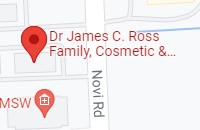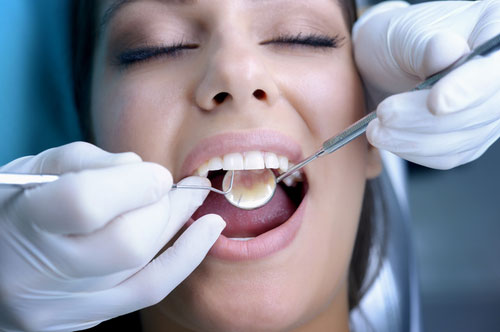When it comes to dental hygiene, brushing your teeth at least twice a day is one of the single-most important factors. Chances are, when you think about brushing your teeth, the action is associated with a manual toothbrush. The popular dental tool has been around for centuries to help people clean their teeth.
But because convenience is such an important part of our daily lives, it’s not too surprising that in the 1990’s, electric toothbrushes gained popularity. These days, you’d be hard-pressed to walk into a friend’s bathroom and not see an electric toothbrush. But are they better for your teeth?
The staff at Dr. James C Ross Family, Cosmetic, & Laser Dentistry is passionate about helping our patients maintain good oral hygiene as part of a healthy daily regimen. That’s precisely why we like to educate our patients and keep you up to date with the latest, important information.
Pros & Cons Of Manual Toothbrushes
There are many benefits to choosing a manual toothbrush, but there are also some potential drawbacks.
Pros
- As long as you use the right brushing technique, which we will cover later in this post, a manual toothbrush can thoroughly clean your teeth.
- There are many styles, bristles, colors, and heads to choose from. The various options make it easy to meet specific needs regarding gum sensitivity and mouth size.
- Manual toothbrushes are easy to travel with because they don’t require batteries or charging stations.
- You never have to worry about changing the batteries or charging your manual toothbrush.
- Manual toothbrushes are inexpensive and even free when you see your dentist for a checkup.
Cons
- Manual toothbrushes require more work than electric toothbrushes.
- There’s no built-in timer to tell you if you’ve brushed your teeth long enough.
Pros & Cons Of Electric Toothbrushes
Pros
- Electric toothbrushes are easy to use because they do all the work for you.
- They tend to be more fun for children who may struggle with manual toothbrushes.
- They come with a built-in timer that will turn the toothbrush off after two minutes of brushing.
Cons
- Electric toothbrushes have to be charged, or the batteries have to be replaced.
- They also tend to cost as much as three times more than manual toothbrushes. You’d be incredibly lucky to find one for free!
- Traveling with an electric toothbrush can be more difficult because they’re larger and require a charger or extra batteries.
- They’re also not as durable. If you drop an electric toothbrush, it may cause enough damage to have to buy a new one.
Manual vs. Electric: What’s The Better Option?
According to a report published in The Cochrane Library, which focuses on the study of health care, certain types of electric toothbrushes may work more efficiently to fight plaque and gum disease than manual toothbrushes.
The research specifically looked at rotational oscillating toothbrushes or brushes with bristles that spin in one direction and then the other. According to the study, those electric toothbrushes removed plaque 11% better than manual toothbrushes when used for three months.
However, researchers made a point to say that electric toothbrushes aren’t required for good dental hygiene.
In general, brushing your teeth reduces gingivitis and can prevent gum disease and tooth decay when used with a fluoride toothpaste. You can get the same results whether you use a manual toothbrush or an electric one.
Simply put, electric toothbrushes may have a slight edge over manual toothbrushes, but not enough of an edge to render manual brushes useless. So what should you do?
It all comes down to personal preference and a conversation with your dentist. When you come in for a checkup, ask us about our personal preference or for advice on which option we think would work best for you. We’re more than happy to help!
To schedule your next appointment or a consultation at Dr. James C Ross Family, Cosmetic, & Laser Dentistry, call 248-697-2487 or fill out our online form.
Visit Dr. James Ross
We can see you as soon as tomorrow!





